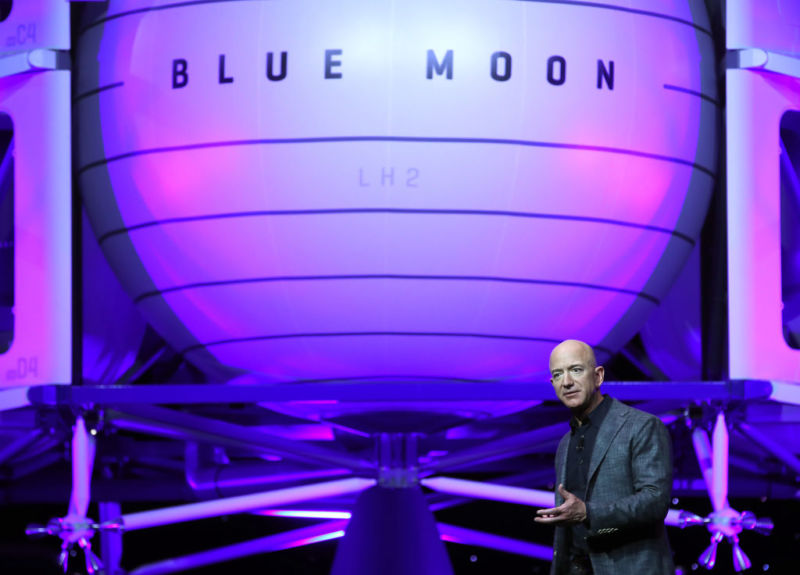Blue Origin suffers grave setback as judge dismisses lawsuit against NASA

For Blue Origin, the honeymoon is over.
This summer, the company filed a lawsuit against NASA, claiming that the agency ignored its own requirements when it awarded the contract for the Human Landing System, intended to take astronauts to the Moon, to SpaceX. Today, the Court of Federal Claims dismissed the case in a one-page ruling, ending a tumultuous chapter in the relationship between the Jeff Bezos-backed space launch startup and the federal government.
The ruling was brief, simply granting the federal government’s motion to dismiss without going into detail. Judge Richard A. Hertling is giving Blue Origin and the government until November 18 to redact the full opinion before it’s released to the public.
“Our lawsuit with the Court of Federal Claims highlighted the important safety issues with the Human Landing System procurement process that must still be addressed,” Blue Origin said in a statement. “Returning astronauts safely to the Moon through NASA’s public-private partnership model requires an unprejudiced procurement process alongside sound policy that incorporates redundant systems and promotes competition.”
Jeff Bezos was more conciliatory, saying in a tweet, “Not the decision we wanted, but we respect the court’s judgment, and wish full success for NASA and SpaceX on the contract.”
Blue Origin claimed that, in granting the award to SpaceX, NASA ignored a requirement that bidders submit a flight readiness review (FRR) for each part of the landing systems. Such meetings allow NASA officials to be briefed on what will happen during a mission, giving them an important opportunity for oversight of public-private partnerships. Blue Origin said that NASA’s request for bids called for an FRR for every launch and that SpaceX’s bid only covered one of more than a dozen launches.
Not the decision we wanted, but we respect the court’s judgment, and wish full success for NASA and SpaceX on the contract. pic.twitter.com/BeXc4A8YaW
— Jeff Bezos (@JeffBezos) November 4, 2021
SpaceX had submitted an FRR for the launch of the spacecraft that will carry astronauts to the Moon but not for the 14 Starship launches that will carry propellant into orbit nor for an additional launch, the purpose of which was redacted.
Before the lawsuit was filed, Blue Origin and Dynetics filed complaints with the Government Accountability Office. In reply, the GAO said that, while SpaceX needed to submit additional FRRs, the omission from the original bid wouldn’t have changed the outcome of the award. Blue Origin also said that NASA should have made multiple awards because that was the agency’s initial preference. The company also said that NASA unfairly made the award based on price, which it hadn’t made a high priority in the request for bids.
The GAO dismissed both arguments, saying that “NASA did not violate procurement law or regulation when it decided to make only one award. NASA’s announcement provided that the number of awards the agency would make was subject to the amount of funding available for the program.” SpaceX’s bid was the highest rated and came in at $2.9 billion, far less than either Blue Origin or Dynetics.
Blue Origin said in its lawsuit that if it had known that NASA was going to ignore FRRs and make cost a priority, the company “would have proposed a fundamentally different HLS design,” and it “would have engineered and proposed an entirely different architecture with corresponding differences in technical management and price scores.”
With the Blue Origin lawsuit thrown out, NASA appears to be moving forward with its SpaceX contract. “NASA was notified Thursday that the U.S. Court of Federal Claims denied Blue Origin’s bid protest, upholding NASA’s selection of SpaceX to develop and demonstrate a modern human lunar lander. NASA will resume work with SpaceX under the Option A contract as soon as possible,” the agency said in a statement.
https://arstechnica.com/?p=1810420